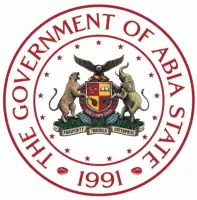The United States Food and Drug Administration (FDA) has approved Lenacapavir, a revolutionary long-acting injectable drug for HIV prevention that requires administration only twice a year. The drug will be marketed under the brand name Yeztugo.
Gilead Sciences, the pharmaceutical company behind the drug, announced the approval in a statement, hailing Yeztugo as a significant breakthrough in the ongoing fight against HIV. Clinical trials demonstrated that the drug provides exceptional protection against HIV infection, showing markedly higher efficacy compared to existing pre-exposure prophylaxis (PrEP) options.
A Transformative Approach to HIV Prevention
"This is a medicine that only needs to be given twice a year and has shown remarkable outcomes in clinical studies, which means it could transform HIV prevention," said Daniel O'Day, Chairman and CEO of Gilead Sciences. He described the approval as one of the company's most significant scientific achievements to date.
The World Health Organization (WHO) welcomed the FDA's decision, describing it as a "milestone" in global efforts to reduce HIV transmission. Currently, WHO recommends oral PrEP, the dapivirine vaginal ring, and long-acting injectable cabotegravir (CAB-LA) as approved HIV prevention methods.
Meg Doherty, Director of WHO's Global HIV, Hepatitis and STI Programmes, emphasized that Lenacapavir's long-acting and discrete formulation could address significant challenges in HIV prevention, including daily medication adherence, frequent clinic visits, and stigma associated with HIV prevention measures.
"WHO is working with partners and national authorities to ensure lenacapavir reaches people who need it most – quickly, safely and equitably," she said.
Implications for Nigeria's HIV Prevention Efforts
This development could have significant implications for Nigeria, where HIV remains a public health concern. According to recent reports, Nigeria has approximately 2 million people living with HIV, with northern Nigeria accounting for nearly half of national cases. States like Rivers, Benue, and Akwa Ibom have particularly high prevalence rates.
The introduction of a twice-yearly injectable prevention option could potentially address adherence issues and reduce stigma associated with daily medication, which are common barriers to effective HIV prevention in Nigeria.
Health experts are optimistic that innovations like Lenacapavir could complement existing prevention strategies and contribute to reducing new HIV infections in Nigeria and across Africa.
Stay updated with the latest health news and developments by following BenriNews on our social media platforms:













